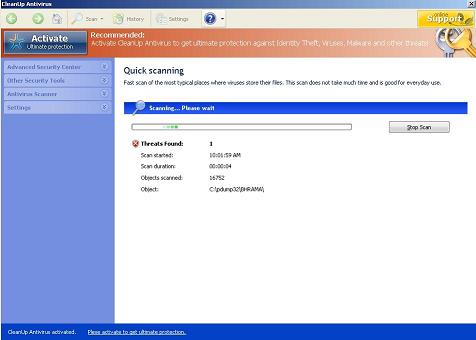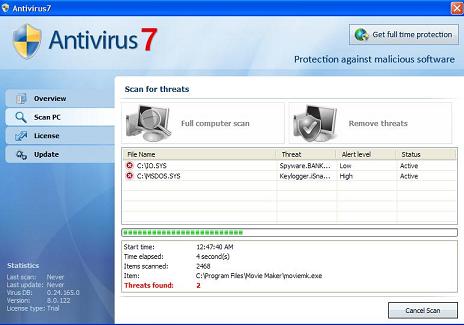.jpg) We’ve warned you before about the rise of rogue security software, as cyber scammers continue to push their fake products. A simple, yet effective, way for these criminals to increase rogue sales is to hitch a ride on the back of a well-known security product, and distribute it through a rogue website.
We’ve warned you before about the rise of rogue security software, as cyber scammers continue to push their fake products. A simple, yet effective, way for these criminals to increase rogue sales is to hitch a ride on the back of a well-known security product, and distribute it through a rogue website.
In its second out-of-band update (meaning delivered outside of the regular Patch Tuesday schedule) in the past three months, Microsoft said today that it’s planning to issue an emergency security update tomorrow. The update will patch a zero-day vulnerability in Internet Explorer 6 and 7 that has been used to launch drive-by attacks.
Check Microsoft’s ‘Security Bulletin Advance Notification’ for full details.
Does it feel like you’re always plugged-in – whether it's signed-in, logged-on, or other various methods of being connected through the latest networking sites and tech gadgets?
For those following the news which broke in January of the cyber attacks against Google – believed to be originating from China – and Google’s subsequent plan to stop censoring Google.cn search results, there’s been a recent update:
Today at Lavasoft, we discovered a number of new clones from the XpAntispyware2010 family of rogue security software. The unique aspect of this family is the ability to randomly change its name. Lavasoft Malware Labs found 36 different names on three operating systems (Windows XP, Windows Vista and Windows 7).
The links below lead to snapshots in the Lavasoft Rogue Gallery:
Windows XP
antispywarexp
antivirusxp
totalxpsecurity
xpdefender
xpdefenderpro
xpsecuritytool2010
xpsmartsecurity
xpsmartsecurity2010
xpantimalware
xpantimalware2010
xpsecurity
xpsecuritytool
Tax season is not a favorite time of year for most of us, but it’s drawing near in many parts of the world.
For those in the U.S., the April 15 income tax filing deadline is quickly approaching. Unfortunately, tax season has its own set of security traps that you’ll need to watch out for, with cyber scammers jumping to take advantage of the swell in online activity and the handover of personal information.
The Internet Crime Complaint Center (IC3), a partnership between the U.S. Federal Bureau of Investigation (FBI) and the U.S. National White Collar Crime Center (NW3C) that serves as a clearinghouse to triage cyber crime complaints, has released its 2009 annual Internet crime report. This year’s findings show that, once again this year, online crime complaints ‘increased substantially,’ highlighting the threat posed by cyber criminals.
From the 2009 Internet Crime Report:
CleanUpAntivirus is a new rogue anti-spyware application. It is a clone of the SmartVirusEliminator family.

In Lavasoft Malware Labs’ Internet security predictions for 2010, we listed scareware and rogue (fake) security products as a rising threat to watch out for. The money made from this malware model ensures that cyber criminals will not abandon what is a very profitable endeavor for them - meaning that this prediction will, unfortunately for users around the world, continue to ring true this year.
- 1 of 2
- ››






